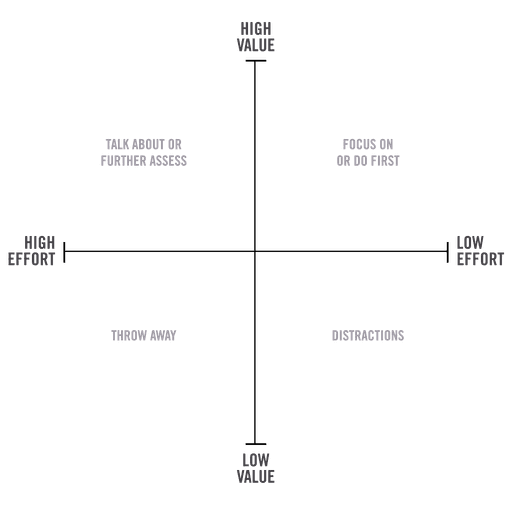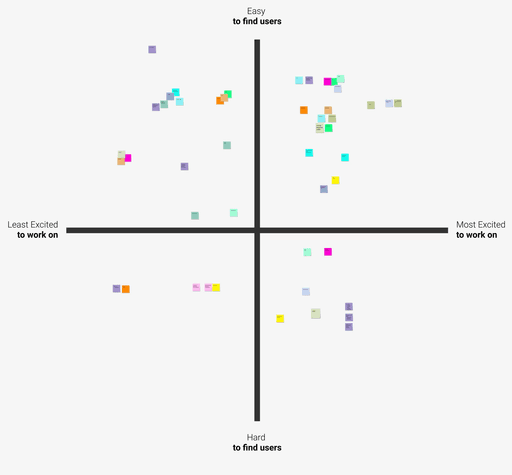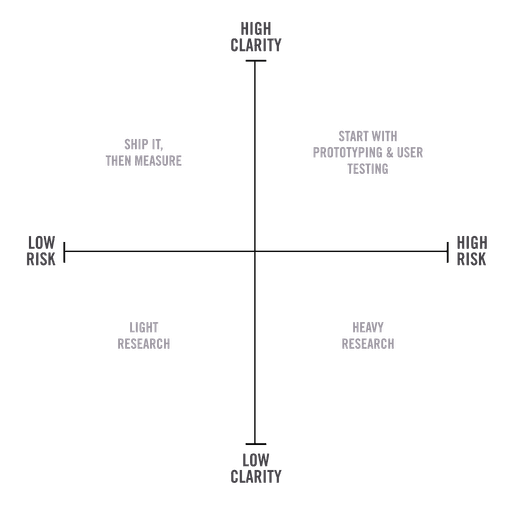PRIORITIZATION
2x2 Matrix
The 2×2 prioritization method gives teams a visual framework to align on what is most valuable based on the information they're working with. These can be features, problems, solutions, and activities. The method consists of drawing a priority matrix grid with four quadrants. The vertical axis is labeled “importance,” and the horizontal is labeled “effort” but this can vary based on context. You can name the different ends of the axes anything but what's important is how you define each section. For example, if we use "high & low value" then it's important to agree on how we define value, is it "value to the business" or "value to the user" etc.
Examples:
• High value, high Impact, or high importance
• Low value, low Impact, or low importance
• High effort, hard to complete, or high urgency
• Low effort, easy to complete, or low urgency

In most cases we're brainstorming using sticky notes and placing them in respective quadrants.
Also note, sticky notes cannot be in the line, we have to make decisive decision.
Examples below is used for my UX class for students to brainstorm markets they want to work within:
• Easy to find users
• Hard to find users
• Most excited to work on
• Least excited to work on

Another example for deciding which features need research or defining the starting point for design

VOTING
Voting & Stack Rank
We can use voting dots to get to a stack rank once we have all the data points we're looking to further define & prioritize within a specific quadrant.
Steps to take:
Catch any duplicates
Make sure everyone has reviewed everything and is alignment of what each data point/sticky note means
Each team member gets 3 dots to use to vote
Make sure we all in agreement of how we define priority
Have each team member dot vote on a specific data point/sticky note
Each team member can use 2 or all 3 dots on one data point/sticky note
After voting, rank to the top 3-5 and that's what the team will focus on going forward
If it's a tie, the facilitator, subject matter expert or stakeholder will decide
